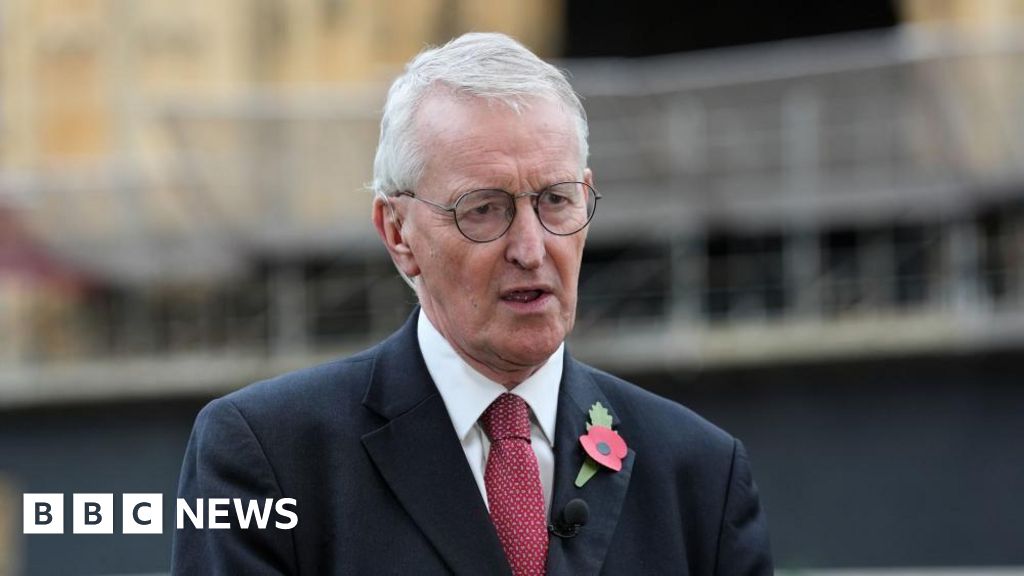Headline: Northern Ireland MLAs Set for Crucial Vote on Post-Brexit Trading Rules
Stormont Assembly Faces Pivotal Vote on Northern Ireland Protocol
In a significant political move, Hilary Benn, the Secretary of State for Northern Ireland, has initiated a process allowing Members of the Legislative Assembly (MLAs) to vote on the contentious post-Brexit trading arrangements—the Northern Ireland Protocol. Benn has sent a letter to the Stormont speaker, urging both the first and deputy first ministers to present a motion for the Assembly’s consideration before the end of November. This democratic consent motion will determine whether current trading arrangements, established under the 2020 UK-EU Withdrawal Agreement, will continue for another four years.
Understanding the Data-Driven Decision
The democratic consent motion is central to the post-Brexit governance of Northern Ireland. According to the Withdrawal Agreement, this process must commence two months ahead of the arrangements’ expiration, set for the end of this year. Local politicians will have a direct voice in deciding if the Protocol remains in effect—an arrangement that aims to assure local governance in the altered landscape of post-Brexit Britain.
“If the first and deputy first ministers do not move forward with the motion, any individual MLA has the power to initiate the process,” Benn’s letter to Stormont illustrates the urgency of the matter. This allows for a nuanced debating period in a climate where political stakes are profoundly high.
Mixed Reactions from Political Parties
The anticipated vote is poised to expose the fractured political landscape within Northern Ireland. Sinn Féin, Alliance, and the Social Democratic and Labour Party (SDLP) are likely to support the continuity of the arrangements, aligning with the central government’s objectives.
Conversely, the Democratic Unionist Party (DUP) has raised alarms about the potential for a democratic deficit, arguing that such a vote undermines the principle of cross-community consent that has historically been foundational to Northern Ireland’s political stability. DUP leader Gavin Robinson commented that the approach is “deliberately designed to drive a coach and horse through the cross-community consent principle which has been at the very heart of all political progress in Northern Ireland.”
He also anticipates that all pro-Union parties will resist the proposal, signaling potential for a contentious debate.
What Happens Next?
Should the democratic consent motion pass without cross-community support, the UK government has committed to an independent review of the post-Brexit arrangements. This review aims to address the implications of these rules on Northern Ireland’s society and economy. As noted in government briefings, an independent assessment could provide essential insight into operational challenges and relationship dynamics with the EU.
Moreover, there is speculation that the government may pursue new agreements with the EU to ease the post-Brexit burden on Northern Ireland, further steering discussions within the Assembly.
Political Dynamics at Stormont
This pivotal vote is not just procedural; it is deeply consequential for community relations and political unity. MLAs are preparing for what analysts predict will be one of the most significant yet predictable votes. Given that unionists opposed to the arrangements are in a minority, the likelihood of the motion passing appears strong.
However, the divisive nature of the issue is expected to create a charged atmosphere within the Assembly chamber. “Whatever happens, expect a divided chamber and divisive votes,” an analyst noted, emphasizing the deeply held beliefs on both sides of the argument.
Community Impact and the Way Forward
The decision surrounding the Northern Ireland Protocol encapsulates deeper issues concerning identity, governance, and trade post-Brexit. The implications of either outcome will resonate beyond the political sphere, affecting businesses, consumers, and the everyday lives of citizens in Northern Ireland.
Communities across the region remain watchful, knowing that the Assembly’s decision could further entrench divides or provide a pathway for consensus-building amid challenging times.
As we approach the crucial vote, what are your thoughts on the potential outcomes? Share your views with us in the comments below!
For further reading on the implications of the Northern Ireland Protocol, check our related articles here. For authoritative insights, visit the UK Government’s official page on the Withdrawal Agreement.
Image
<img src="url-to-image" alt="Stormont Assembly" />With careful monitoring and strategic discussions ahead, Northern Ireland stands at a crossroads that underscores the complexities of governance in a post-Brexit era.

